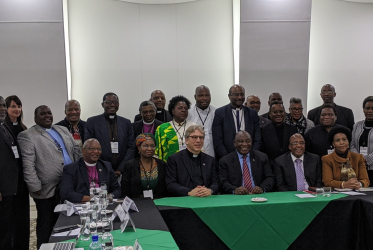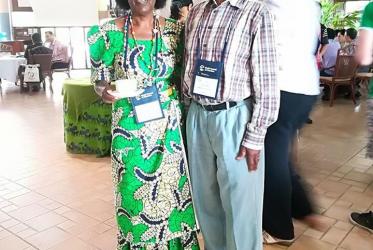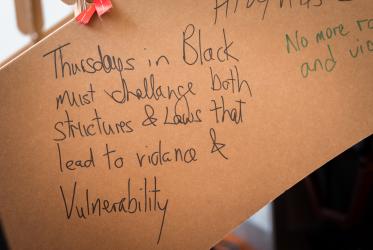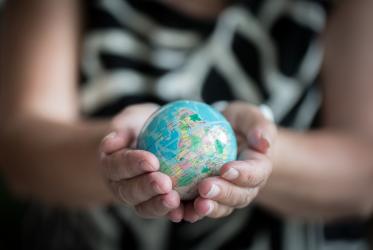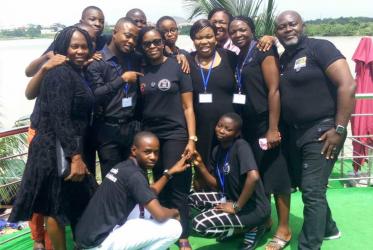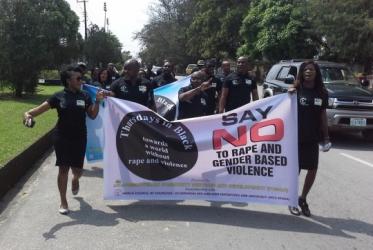Displaying 1 - 20 of 20
South Africans draw hope despite recurring challenges
16 December 2019
La délégation du COE rencontre le président sud-africain Ramaphosa
09 December 2019
Youth leaders: “We will stop at nothing” to end HIV and violence
17 October 2019
When you strike the women, you strike a rock
18 September 2019
Frapper une femme, c’est comme frapper un rocher
18 September 2019
Paving the way for ecumenical studies, learning English in Bossey
24 September 2018
École GEM: comment concilier théologie et économie
05 September 2017


